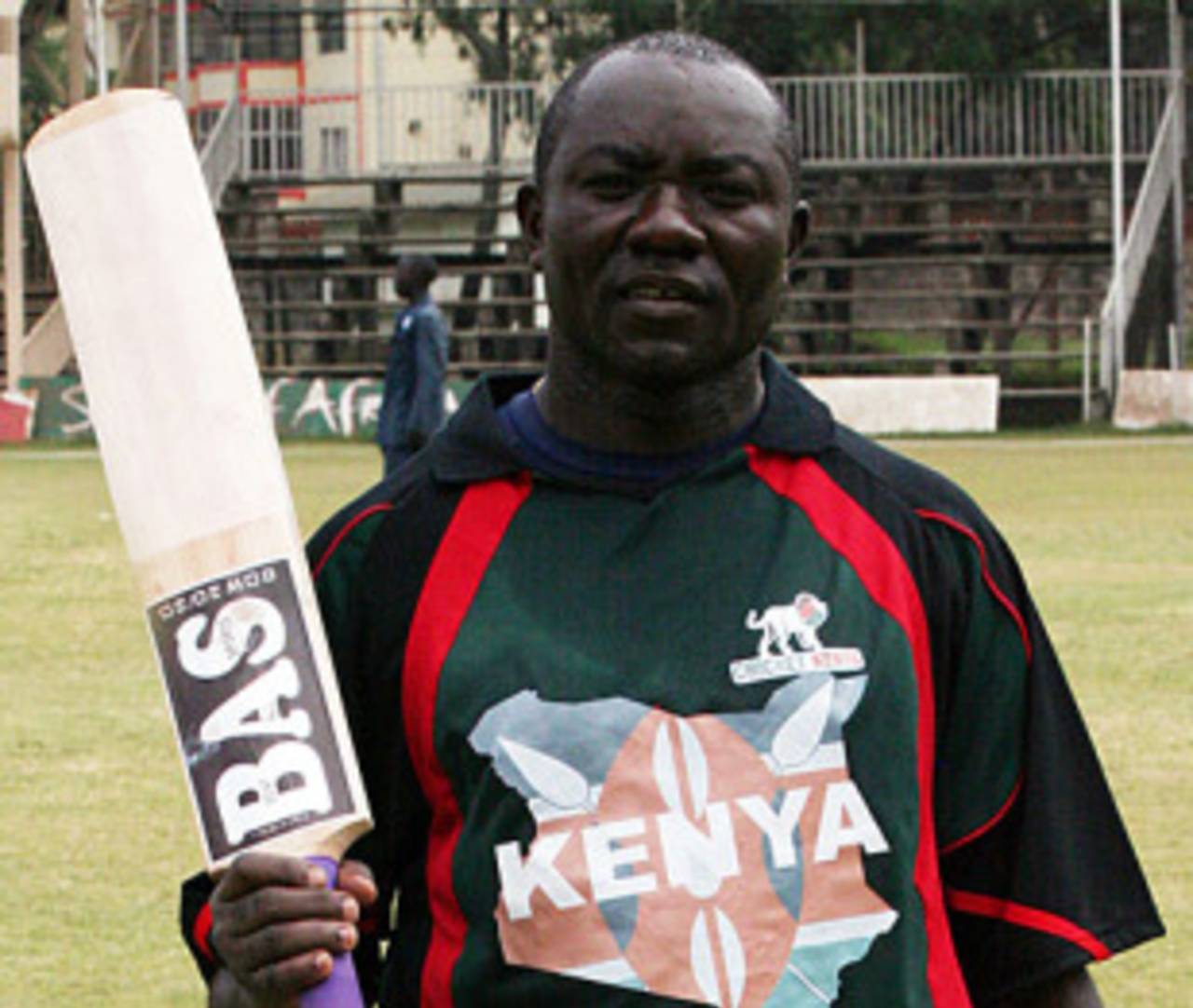'Kenyan cricket at its lowest ebb'
Mismanagement, lack of competitive cricket and a poor structure are at the root of Kenyan cricket's current state, says Steve Tikolo
Interview by Brydon Coverdale
Mar 12, 2011, 7:22 PM

Steve Tikolo: He's seen the best and worst of Kenyan cricket • Thota Sreenivas
Steve Tikolo has played in five World Cups, has represented his country in 133 ODIs, more than half of them as captain, and has been part of Kenyan cricket's greatest moments. When he speaks about the state of the game in his country, he deserves to be heard. And his message is blunt.
"Over the years we've had our ups and downs," Tikolo says. "Right now I think Kenyan cricket is at its lowest ebb."
It's not a surprising sentiment, given the results Kenya have dished up in this World Cup. But how has it come to this? Tikolo was there in 1996 when Kenya, at their first World Cup, provided one of the most memorable upsets in history by beating a West Indies side boasting Brian Lara, Richie Richardson, Curtly Ambrose and Courtney Walsh.
He was there when they defeated India in 1998 and again in 2001. And of course, he was there for the 2003 World Cup, when they reached the semi-final, beating Sri Lanka, Zimbabwe, Bangladesh and Canada along the way.
That was meant to be Kenya's breakthrough tournament and when it finished, Test status was a realistic aim. All that was needed was for a first-class competition to be set up in Kenya, and money funnelled to grassroots development to ensure that the next generation of cricketers had a chance to grow.
But Kenya's promise quickly disappeared in a mire of mismanagement. Eight years later there is still no first-class cricket in Kenya, only a one-day club competition, and that is no way to move forward.
"If you look at 2003, the ICC wanted Kenya to be the next Test team," Tikolo says. "They did help. They put in some money for development at the grassroots. But because of poor management in Kenyan cricket, all that went down the drain. People ate the money without showing anything for it. No development was done. That really annoyed the ICC and they sort of forgot about Kenya. It was Kenya's fault in terms of management that we didn't progress.
"The new [management] team that came in, they haven't had any money to work with. They have only been depending on the grants from the ICC that Associate countries get. We have not had a sponsor for the last seven or eight years. It has also been tough on them, in terms of managing the little grants they get from the ICC to look after the national team, do the grassroots development and management."
Things are slowly turning around, but it is no short-term process. Tikolo, 39, has seen the best and worst of Kenyan cricket, and while he is optimistic about the talent that is present in his country, he knows that getting those young players into a professional system is easier said than done.
"A club like Gymkhana, the board pays for us to train there. But if it's outside the training hours, I cannot go on my own and do my throwdowns. I will be chased away. They will simply say you're not a member, you're not allowed in here"
"The system we have at home is private clubs, members' clubs," Tikolo says. "Even the national team itself, we find it difficult to find a place to go and train. A club like Gymkhana, the board pays for us to train there. But if it's outside the training hours, I cannot go on my own and do my throwdowns.
"You cannot have that extra training, apart from the hours allocated for the national team. If I go there to do training on my own, I will be chased away. They will simply say you're not a member, you're not allowed in here. So we need to get a facility where the national team players can walk in at any time and practice."
If that sounds like pretty basic stuff, imagine what Tikolo's young team-mates would think if they visited Australia's Centre of Excellence. And when the gap is that vast, how will they feel when they take the field on Sunday against Australia? How will they cope with facing Shaun Tait and Mitchell Johnson, or bowling to Ricky Ponting and Shane Watson?
"There is definitely talent," Tikolo says. "All that needs to be done is to get them playing more competitive cricket, so that when they walk on to the park to come and face Brett Lee, they're not overawed by it, it's like something they do every other day. But right now, you walk on the field and you're facing Shaun Tait, who you've only seen on TV, and it becomes a bit too much for them to handle."
Most 39-year-olds wouldn't relish facing Tait either, but Tikolo has been around long enough to know what he should expect. The World Cup will be his last hurrah for Kenya, ending a 16-year international career, but he wants to stay involved with coaching in his country. If that means mentoring a side that has been axed from the World Cup - the ICC is planning a ten-team tournament next time - Tikolo would be disappointed.
"We need to get more games against tough opposition," he says. "That's the only way you improve. When you get beaten, you go back and sit down and find areas that you need to improve. If you keep on playing at the same level, you stagnate."
And after eight years of stagnation, Kenyan cricket needs to move forward. At least, from their lowest ebb, things can only improve
Brydon Coverdale is an assistant editor at ESPNcricinfo